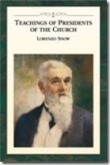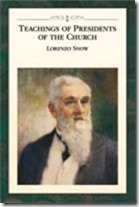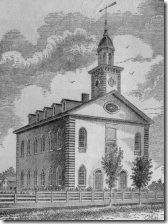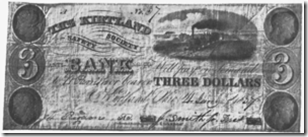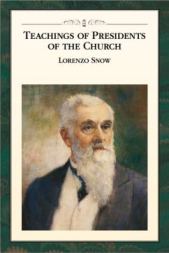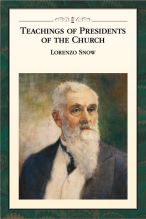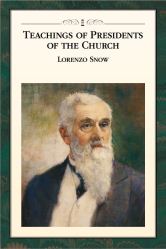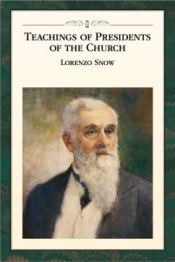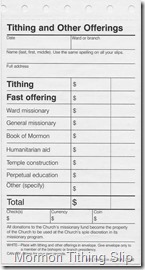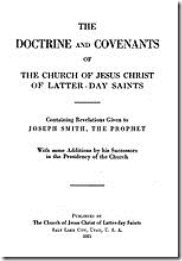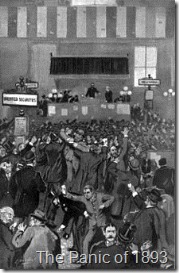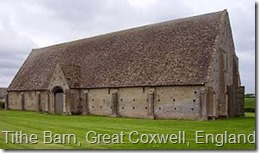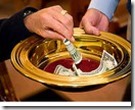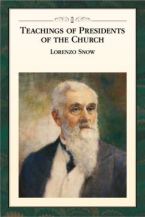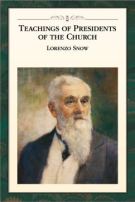The chapter I have been assigned to review is something of a gift really. The title and content of this chapter go to the heart of what most mainstream Christians would say is one of their main bones of contention when addressing the beliefs and claims of Mormonism, namely the LDS church’s emphasis on Joseph Smith. As an indication of the content of this chapter, there are 41 instances of the name ‘Smith’ and only one mention of the name ‘Jesus’, and even that is in the context of the story of his alleged appearance to Joseph Smith. And here was I, thinking that I was reviewing a chapter of teaching material from the church that claims to have been established in order to restore the true gospel of Jesus Christ; the real, authentic Christianity. Well, we don’t see too much of Jesus here.
There are, then, many avenues I could choose to go down in examining the remarkable claims made about the character and life of Joseph Smith in this chapter. I will begin with this quote: “God had called him to deliver the poor and honest-hearted of all nations from their spiritual and temporal thralldom [bondage].” For a couple of reasons, such a statement goes to the heart of Mormonism. Firstly, there is the clear suggestion that, until the ‘calling’ of Joseph Smith to the role God had supposedly assigned him, people were labouring in spiritual bondage (i.e. there was a need for a ‘restoration’ of truth). This implies that there was a need for the teachings of Joseph Smith because what Christian believers had been thus far treating as gospel was somehow insufficient or false. Secondly, I would suggest that this quotation is verging on blasphemy since it is suggesting that God chose Joseph Smith to ‘deliver’ or ‘save’ people from spiritual bondage. I think that we all know that this was the mission of Jesus, not Joseph Smith!
The second statement which struck me as I read through this chapter was this, “As I looked upon him [that first time] and listened, I thought to myself that a man bearing such a wonderful testimony as he did, and having such a countenance as he possessed, could hardly be a false prophet”. It seems quite telling to me that whoever has compiled and authorised the content of this teaching manual has decided that this comment from Lorenzo Snow is worthy of inclusion. I say this because the above quote shows that Lorenzo Snow decided that Joseph Smith must have been who he said he was on the basis of his having a ‘wonderful testimony’ and a ‘countenance’ that left an impression on him. This is very much in line with the LDS way of establishing truth, namely impressions or feelings that what they are hearing is right, rather than checking if what is being taught is in line with the Jesus of the Bible.
In the following section, some very bold comments are made regarding the character of Joseph Smith. Here is a flavour of that: “There never was a man that possessed a higher degree of integrity and more devotedness to the interest of mankind than the Prophet Joseph Smith. I knew Joseph Smith to be an honest man, a man of truth, honor and fidelity, willing to sacrifice everything he possessed, even life itself, as a testimony to the heavens and the world that he had borne the truth to the human family.” Why the need to create such an outstanding impression of Joseph Smith’s integrity? Any student of the Bible can tell you that God often chose people with major flaws in their character. One need only look at the lives of people such as David and Moses, as well as the people Jesus drew to him, to know that God doesn’t call the people who have already proved that they are ‘worthy’. Besides, the claims made here about Joseph Smith’s character stand in direct opposition to many of the things known about him. Mormon apologists will even acknowledge these flaws as a sign that Joseph Smith was only human after all. So why the bold claims made officially here? They do not stand up. Here are some reasons why I say this.
- Joseph Smith ‘married’ himself to the wives of other men, as well as to very young girls.
- He publicly lied about practising polygamy. “What a thing it is for a man to be accused of committing adultery, and having seven wives, when I can only find one. I am the same man, and as innocent as I was fourteen years ago; and I can prove them all perjerurs.”
- Joseph Smith also claimed to have done more than Jesus ever did in terms of holding a group of followers together: “I have more to boast of than ever any man had. I am the only man that has ever been able to keep a whole church together since the days of Adam. A large majority of the whole have stood by me. Neither Paul, John, Peter, nor Jesus ever did it. I boast that no man ever did such a work as I. The followers of Jesus ran away from Him; but the Latter-day Saints never ran away from me yet.”
- Joseph Smith claimed that he had translated some Egyptian papyri that contained writings by Abraham’s own hand into English, when in fact they were not even from the same era as Abraham and were later discredited by all the Egyptologists who looked at the work.
- When the truth was published that Joseph Smith had been claiming to his followers that he had received a revelation that contained a doctrine of plural marriage in the ‘Nauvoo Expositor’, Joseph Smith’s response was to have the publication’s printing press destroyed, ultimately leading to Smith’s imprisonment and eventual killing.
I contend that these actions are not those of a man with the highest degree of integrity and devotedness to the interest of mankind.
Much is made in this chapter of how people felt in the presence of Joseph Smith. For example: “never yet have I met another person in whose company I felt the peculiar and powerful influence that I felt while in the presence of the Prophet Joseph Smith. It was due to the great portion of the Spirit of God that he possessed, merely the shake of his hand would cause a person to become filled with this influence, and any sensitive nature would know that he was shaking the hand of an extraordinary person.” Why such attention on one individual? The whole chapter is concerned with the building up of the image of Joseph Smith and not with drawing people towards their Saviour. Mormons do claim to be Christians after all (and actually the only fully authentic ones at that!)
If the point was not already made clearly enough, then the sub-heading to the final section of the chapter sums it up: “Each of us can gain a testimony that Joseph Smith was a prophet and that the gospel was restored through him.” If the LDS church is Christian, then surely a devotion and submission to Jesus as Lord and Saviour is what counts. The idea of then also ‘gaining a testimony that Joseph Smith was a prophet’ seems utterly superfluous. What would be the need for a true and devoted follower of Christ to gain such a testimony? This could not add anything to knowing, and being known by, the Lord. Do I need to gain a testimony that Isaiah was a true prophet? Do I need to gain a testimony that God spoke to Moses? Certainly, the Mormon missionaries would not expect you to, so why is this then the case for Joseph Smith?
The chapter continues and expands on what this testimony actually means: “What is the nature of our testimony? It is this: That this is the dispensation of the fulness of times; that the angel that John the Revelator saw flying through the midst of heaven having the everlasting Gospel to preach unto them that dwell on the earth, and to every nation, and kindred and tongue and people—that that angel has made his appearance and restored the Gospel to the earth, Joseph Smith being the instrument through which the restoration was effected” Yet any close examination of the gospel contained in the New Testament alongside the ‘gospel’ of Mormonism will conclude that we are looking at two different sets of teachings. There is one which frees people from the consequences of sin through Jesus’ suffering and death on the cross, and the other which demands unfailing compliance with a religious structure and system that leaves the grace of Jesus out of the picture.
The chapter closes by emphasising the importance of having an ‘individual knowledge’ of Joseph Smith being a true prophet. Again, we see that what is crucial throughout this chapter is, sadly, an acceptance of the claims that Joseph Smith made about himself, rather than an understanding and acceptance of Jesus as Lord and Saviour. For Mormons, the focus of attention and faith is in the actions of Joseph Smith, not Jesus.
